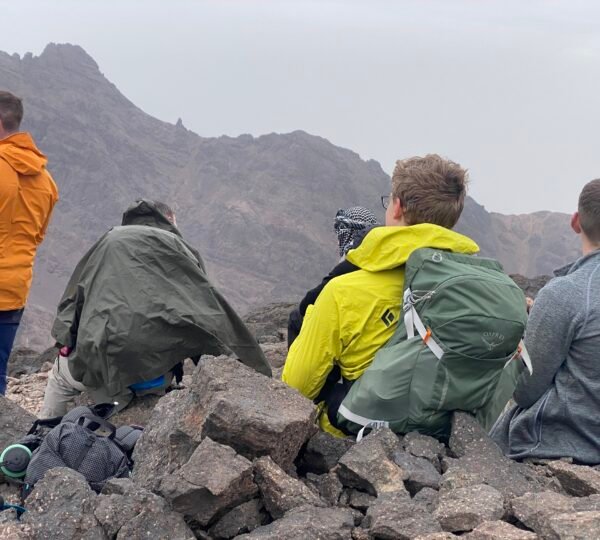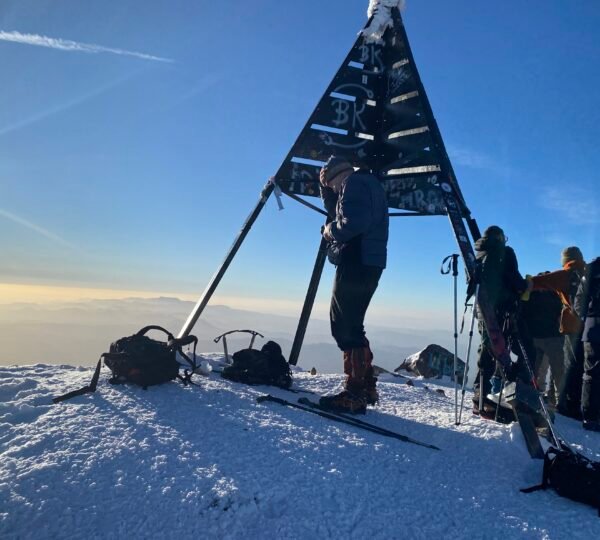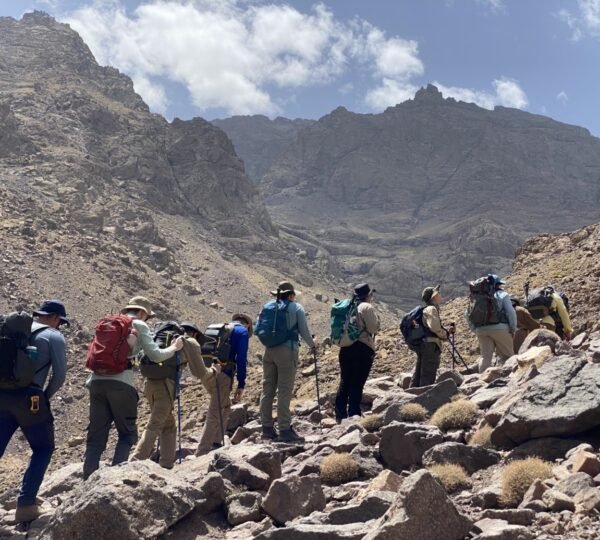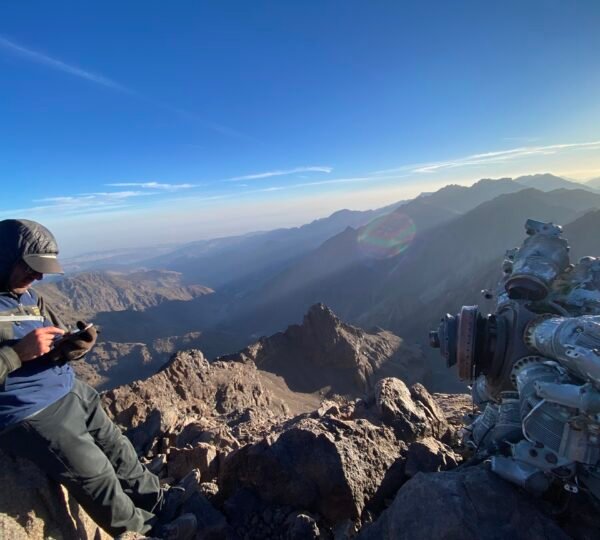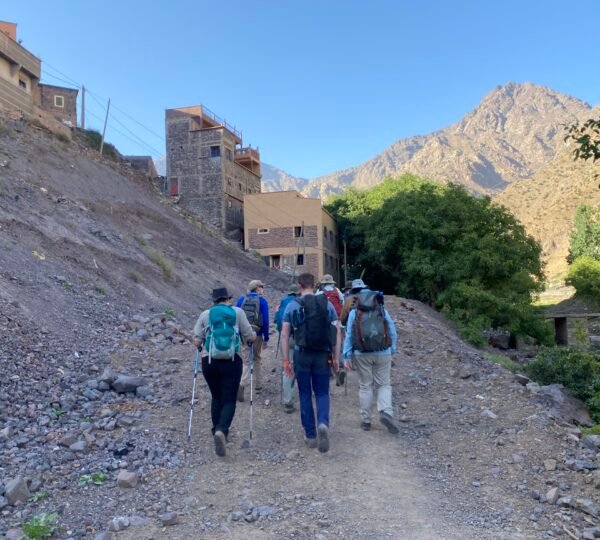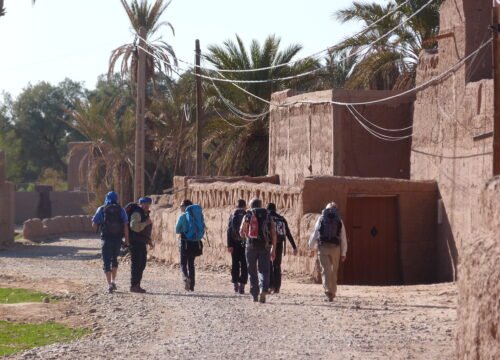The Toubkal Ascent Trek is a truly unforgettable experience, offering trekkers a chance to conquer North Africa’s highest peak, Mount Toubkal (4,167 meters), and witness some of the most breathtaking landscapes the High Atlas Mountains have to offer. The trek is not just a physical challenge; it’s an immersion into Morocco’s rich natural beauty, culture, and history.
Toubkal: A Historical and Cultural Icon
Mount Toubkal, standing at 4,167 meters, is not only the highest point in Morocco but also in the whole of North Africa and the Arab world. Its summit is a coveted goal for trekkers from all over the globe, drawn by the allure of its towering presence and the unmatched panoramic views it offers. The mountain was first ascended by the Frenchman Dominique de la Roche in 1923, marking a significant moment in the history of mountain exploration in the region. Since then, it has become a symbol of the Atlas Mountains, attracting adventurers and mountaineers seeking to challenge themselves on its rugged terrain.
But Toubkal’s significance goes beyond its size and the challenge it presents to climbers. The mountain is also a focal point of Berber culture and history. The Berbers, Morocco’s indigenous people, have long revered the mountain and the surrounding valleys. The Toubkal region, particularly the Imlil Valley, serves as a gateway to the trek and provides an intimate glimpse into traditional Berber life, with stone villages, terraced fields, and ancient agricultural practices that have been preserved for centuries.
The Trek: A Journey of Discovery
The 2‑day Toubkal ascent trek offers trekkers a chance to explore this magnificent landscape at a more intimate pace. The trek starts in Imlil Valley, a picturesque village nestled at 1,740 meters, known for its traditional Berber architecture and tranquil atmosphere. From here, you’ll follow a well-trodden path that winds through lush juniper forests and narrow valleys, offering expansive views of the Azzaden Valley below. As you ascend, the air grows thinner, the landscape more rugged, and the terrain more challenging.
The first day culminates at Refuge du Toubkal, a cozy mountain lodge at 3,207 meters, where you’ll rest and prepare for the summit push. The refuge offers basic but comfortable accommodation, providing an ideal setting to acclimatize before the final ascent. As night falls, the stars shine brightly in the clear mountain air, setting the stage for the early morning start the next day.
On the second day, you’ll rise before dawn to begin your ascent to the summit. The climb to the top of Toubkal is both physically demanding and spiritually rewarding. As you ascend, you’ll be treated to panoramic views of the High Atlas range, including neighboring peaks like Ouanoukrim and Mgoun. At sunrise, the summit offers an awe-inspiring spectacle, the early light casting soft hues over the Sahara Desert to the south, painting the sky in shades of pink, gold, and orange. It’s a moment of serenity and reflection, a feeling that stays with you long after the trek is complete.
After enjoying the summit views and capturing your summit picture, the descent begins, taking a different route past Tibhirine, a high plateau that hides the remains of a plane wreck from the 1970s. The area holds historical significance and adds a layer of intrigue to the trek, allowing trekkers to reflect on the convergence of nature and history in this remote region.
Why Toubkal is Special
Toubkal offers much more than a physical challenge; it’s an opportunity to connect with nature, history, and a way of life that has remained largely unchanged for centuries. The trek provides unparalleled views of the High Atlas Mountains, the traditional Berber villages that dot the valleys, and a profound sense of accomplishment when you stand at the summit. Whether you’re a seasoned mountaineer or a passionate hiker, the Toubkal trek is an iconic adventure that offers both a physical and emotional journey, where the rugged beauty of Morocco’s mountains meets the rich history of its people.

